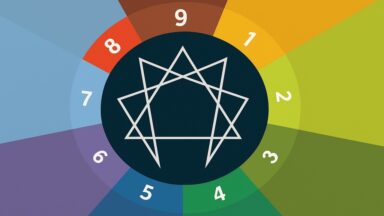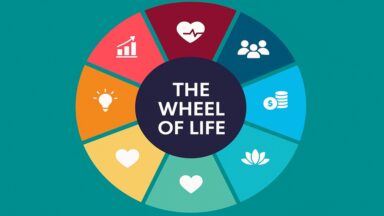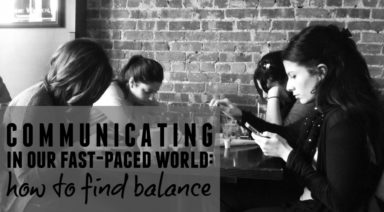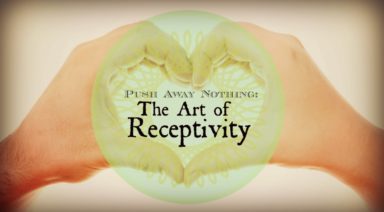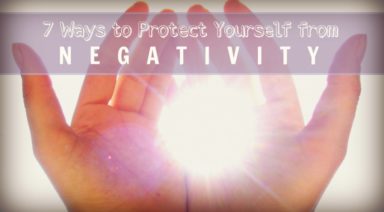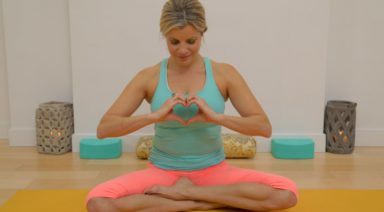4 Ways to Move Through Your Emotions: LOVEolution Project

I’ve written extensively about how humans like to repress their emotions and the side effects that result. Now, let’s look at how we can experience all of what our emotions have to offer so that we can move through any roadblocks to our personal and transformational growth.
Emotions are energy in motion.
Panache Desai
Here are four steps for how to experience emotional health.
- Become Aware
We have repressed our feelings for so long, it can be intensely uncomfortable when we become aware of our emotions, especially sadness. The word depression has become our “go to” because we do not know how to transform our sadness into an authentic state of happiness; this is a lost opportunity for growth. Instead, we quickly turn to pharmaceutical intervention, which makes us numb. Pharmaceutical companies will continue to prey on us while we play right into their hands of marketing illness. Feeling sad? Take this pill.
A dear friend of mine who experienced some very challenging events in life did decide to turn to medicine, and she said for two years she didn’t cry.
I very much believe that medicine can bridge the gap to health, but YOU need to cross the bridge.
- Sit with your emotions
When you have lost your way, the only thing left is to slow down and just observe with a desire to understand. We need to remember what emotions are—a wave of energy that offers an opportunity to evolve in our human experience. It is that simple. Don’t judge, just be the observer and look for ways to progress.
Additionally, you may want to become aware of the behaviors you may engage in to avoid your emotions. Many try numbing with an addiction (food, drugs, sex), and this only results in a moment of instant gratification instead of long-term emotional health. Numbing can quickly take control, causing you to lash out and misdirect frustration, which really comes from the lack of understanding your emotions. These are just a few of the many behaviors that stem from emotional repression.
- Move Emotions Up and Out
Many, including myself, have taken the route of traditional talk therapy. For years it was even considered cool to go lay down on a therapist’s couch. However, there we sat talking about the same things in life, over and over. At some point, in order to evolve, we must move how we feel forward; this means letting go of how this will look in the future or how it looked in the past.
Feelings are a gift to help you transform, and there are many tools to move emotions through you. However, you have to find what works best for you. Here are a few places to start:
Forgiveness of self
Forgiveness does not have to be a two-way street; just let go of your story and recognize we are all here to make mistakes in this human experience.
The physical practice of yoga and breath
Yoga asanas allow you to focus on the releasing of emotions. The practice of yoga is intended to help you surface your emotions in a gentler way. This is why when we attend a hip opener class we may feel emotional afterward, as we store emotions in our physical body. Pranayama is personally my favorite way as I intentionally set a breath cycle to visually release things that are no longer serving me.
Crying
Crying is one of our greatest emotional releases. Yes, our society has turned this into a form of weakness by telling us big boys and girls don’t cry. We need to work together to change this perception. We ALL need to cry! Next time, instead of telling your friend not to cry give them a hug and let them cry it out. Give your friend the space to be vulnerable and release. You do not have to be the “fixer.”
- Let Life Teach You
Many of the challenges in our life come as a gift to teach us a lesson. With this gift we need to accept responsibility for our own healing, as only YOU can be your FIXER. Start with the relationships in your life, as this is usually a great source of emotion for us all.
Just as with our emotions, we need to evolve in our relationships, too. This means we sometimes get angry or frustrated within the relationship. Instead of reaction and blame, sit down (face to face) and have a gentle conversation to understand how you got there and how to move forward. Maybe it is time to let go, but finding and appreciating the love with compassion will pave a beautiful road with the gift of a lesson.
Understanding emotional wellness will be the greatest gift we can give our children and ourselves.
Now more than ever, we need to embrace our emotional wellness as we continue to live in a world that is moving at epic speeds.
The increasing level of technology that continues to remove emotion and connection from our conversations and experiences is ‒ and will continue ‒ to negatively impact us if we don’t start to pay attention.
The good news is that many of us are sensing that we need to find the courage to break this cycle. This will only allow for us to grow and re-align with our whole, authentic being.
Explore Your Emotional Authenticity
Want to raise your vibration? If you have been ignoring your emotions, then you’re creating vibrational density. Learn to let your emotions become your allies through your life’s journey.
Take the next step and move past judgment, away from fear, and beyond the boundaries of your comfort zone when you become a member of Gaia. Start your streaming here with Signing Your Soul Signature with Panache Desai.
What the Enneagram Is and How to Identify Your Dominant Enneatype
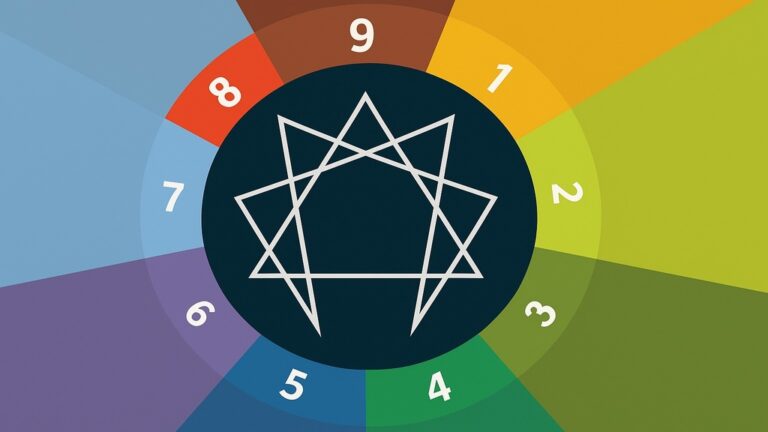
The Enneagram is a tool for self-knowledge that describes nine personality types, each with a particular way of thinking, feeling, and relating to the world. Its purpose is to help us understand our deepest motivations and the unconscious patterns that shape our lives. In this article, we explore what the Enneagram is, how it works, and how you can discover your dominant Enneatype to better understand yourself and grow as a person.
Table of Contents
- What Is the Enneagram of Personality?
- What Are the Enneatypes and How Are They Classified?
- What Are Wings in the Enneagram and How Do They Influence Us?
- What Does the Enneagram Symbol Represent?
- How to Discover Your Dominant Enneatype
- Self-Knowledge Through the Enneagram
- The History and Origin of the Enneagram
What Is the Enneagram of Personality?
The Enneagram is a system of self-knowledge that organizes human personality into nine main behavioral patterns, known as Enneatypes. Each person tends to live from one of these nine styles, which form during childhood as a response to an emotional wound. From there, we develop a personality that attempts to compensate for that pain, repeating beliefs, attitudes, and reactions we rarely question.
The word “Enneagram” comes from Greek and means “nine lines,” referring to the symbol that represents it. This symbol shows how the nine types relate to each other and helps us understand the changes we experience when we are emotionally balanced or unbalanced. The Enneagram is not a personality test, but rather a map that explains our automatic reactions and the psychological roots behind them.
The most valuable aspect of the Enneagram is that it not only reveals our defense mechanisms but also our potential for transformation. By identifying our dominant Enneatype, we can understand what limits us, what drives us, and what we need to evolve. For this reason, this tool is increasingly used in personal, therapeutic, educational, and professional development processes.
What Are the Enneatypes and How Are They Classified?
The Enneatypes are the nine personality types described by the Enneagram. Each one emerges from an emotional wound that shapes how we see the world and relate to others. These psychological structures are not rigid labels, but rather defense mechanisms developed in childhood to feel safe, loved, or valued. Knowing our dominant Enneatype allows us to understand what deeply motivates us, what our core fears are, and which patterns we tend to repeat unconsciously. Below, we describe each of the 9 Enneatypes in the Enneagram.
- Enneatype 1 (The Perfectionist): Their core wound is the belief that they are not good enough. To compensate, they constantly strive to do things “right,” following strict rules and high standards. They are usually responsible, ethical, and committed, but can also be rigid, critical, and prone to frustration when things don’t go as expected.
- Enneatype 2 (The Helper): They believe they must earn love by serving others. They devote themselves to caring, supporting, and being available, hoping for affection in return. While generous and empathetic, they can fall into emotional dependency and manipulative behaviors when they don’t feel appreciated.
- Enneatype 3 (The Achiever): They fear they are not worthy unless they prove their success or accomplishments. Their self-esteem is tied to performance and how others perceive them. Often efficient, ambitious, and charismatic, they may lose authenticity by adapting to expectations and avoiding vulnerability.
- Enneatype 4 (The Individualist): Their wound is the feeling of not being enough just as they are. They seek to stand out by being unique, special, and different. They experience emotions intensely and often feel misunderstood, which can lead to melancholy, envy, and disconnection from the present.
- Enneatype 5 (The Observer): Their main fear is not being able to cope with emotional demands. To protect themselves, they retreat into their minds, knowledge, and isolation. Analytical, independent, and intellectual, they may also be distant and disconnected from emotions and human contact.
- Enneatype 6 (The Loyalist): Their wound is rooted in mistrust of themselves and the world around them. They live in a state of alertness, anticipating danger and seeking certainty. Loyal, responsible, and cooperative, they can also be anxious, indecisive, and prone to relying on authority figures for guidance.
- Enneatype 7 (The Enthusiast): They avoid pain and discomfort by constantly seeking positive stimulation. They fill their schedules with plans, activities, and distractions to avoid confronting inner emptiness. Cheerful, versatile, and optimistic, they can also be inconsistent, superficial, and escapist.
- Enneatype 8 (The Challenger): They fear being hurt or controlled by others, so they adopt a stance of strength and dominance. They protect themselves by showing authority, confidence, and determination. While they can be leaders, protectors, and just, they may also come across as authoritarian, aggressive, and resistant to vulnerability.
- Enneatype 9 (The Peacemaker): Their wound lies in the fear of conflict and rejection from others. They tend to minimize themselves, avoid confrontations, and adapt to avoid discomfort. Calm, kind, and conciliatory, they may also be passive, disconnected from their desires, and struggle with decision-making.
What Are Wings in the Enneagram and How Do They Influence Us?
Within the Enneagram, each Enneatype is connected to the two neighboring types on the circle. These are known as “wings.” For example, someone whose dominant Enneatype is 5 may have a wing 4 or a wing 6. These wings don’t change the core type, but they do nuance our personality by adding secondary characteristics that broaden or balance our traits.
The influence of wings can be very strong or barely noticeable, depending on each person’s level of personal development. Some people clearly identify with one of the two wings, while others display traits from both. Wings function as extensions of the main type and often bring in abilities or resources that help compensate for certain limitations of the dominant Enneatype.
Understanding our wings not only deepens self-awareness, but also helps us better understand our inner contradictions. Through them, we can observe how our personality adapts, how we blend different traits, and how we expand our ways of responding to situations. Identifying the role of our wings is a key step toward working on ourselves with more consciousness and flexibility.
What Does the Enneagram Symbol Represent?

The Enneagram symbol is a geometric figure made up of a circle, an equilateral triangle, and a six-pointed irregular line. At first glance, it may seem complex, but each part has a deep meaning that helps us understand how this system works. The nine points around the circle represent the nine Enneatypes, and their placement is not random—they reflect a logical order related to energy and transformation.
The triangle connects points 3, 6, and 9, forming what is known as the “inner triad.” This shape represents three fundamental forces in the human being: action, emotion, and thought. The six-pointed figure (connecting points 1-4-2-8-5-7) illustrates the internal movement between types, showing how we shift depending on our level of balance or stress. This dynamic pattern is key to understanding growth or stagnation within each personality.
Beyond its shape, this diagram shows that we are in constant transformation as human beings. Rather than labeling us, the symbol invites us to see that we are always evolving—either growing or getting stuck. Visualizing how the Enneatypes relate to each other allows us to better understand our inner transitions and the possible paths for conscious evolution.
How to Discover Your Dominant Enneatype
Discovering your dominant Enneatype is not about taking a simple quiz, but about observing with honesty your most frequent emotional, mental, and behavioral patterns. While questionnaires can help point you in the right direction, true understanding comes when you recognize yourself in the description of a type—especially in its core emotional wound. Identifying the type that reflects your deepest motivations and defense mechanisms is a personal process that requires reflection and sincerity.
A good starting point is to carefully read through the descriptions of the nine Enneatypes, paying attention to what makes you uncomfortable or resonates with you intensely. It’s not just about identifying external behaviors, but about detecting the inner need that drives your actions. Are you seeking approval, control, security, freedom? Observing how you react to conflict, failure, or criticism can offer valuable clues about your primary type.
It can also be helpful to complement this process with books, courses, or professional guidance. Therapists and coaches trained in the Enneagram can support your self-discovery in a more structured way. As you gain a clearer understanding of your type, you can begin working on your blind spots, reconnect with your most authentic self, and move toward a more conscious and liberated version of who you are.
Self-Knowledge Through the Enneagram
The Enneagram is not a system for labeling people, but rather a tool for understanding how we disconnect from our essence and how we can return to it. It helps us clearly see the unconscious patterns we’ve repeated for years—often the source of suffering, conflict, or frustration. By identifying our Enneatype, we gain the opportunity to stop acting on autopilot and begin making choices from a more conscious place.
The self-knowledge process that the Enneagram proposes is neither immediate nor linear. It involves peeling back layers of self-deception, acknowledging emotional wounds, and observing our defensive behaviors with compassion. It also invites us to reconnect with our essential virtues—qualities that already live within us, but which we’ve often forgotten or suppressed out of fear. This journey is not about perfection, but about authenticity and balance.
Knowing yourself through the Enneagram involves a commitment to personal growth and greater emotional responsibility. As we understand ourselves better, we also learn to understand others. This model offers a shared language to speak about the human experience—with all its light and shadow—and reminds us that beyond personality types, we all share the same longing: to live with more awareness, freedom, and meaning.
The History and Origin of the Enneagram
The origin of the Enneagram is complex, combining philosophical, spiritual, and psychological influences. While its symbol has ancient roots tracing back to Middle Eastern traditions and Sufism, its modern application to the study of personality began in the 20th century. It was the Bolivian mystic Óscar Ichazo who first structured the nine character types into a coherent system, integrating knowledge from various traditions and philosophical schools.
Later, Chilean psychiatrist Claudio Naranjo developed the model from a therapeutic perspective, incorporating concepts from Western psychology. Through his clinical experience, he outlined the traits and defense mechanisms of each type, allowing it to be applied in educational and psychological settings. His contribution was key to transforming the Enneagram into a practical tool for self-discovery. In recent decades, its use has expanded and gained popularity around the world.



